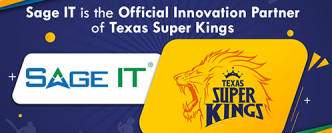A recent McKinsey study revealed a startling statistic: AI has the potential to automate a staggering 50% of current sales activities. This revelation is sending shockwaves through sales departments, prompting a wave of introspection about the future of human salespeople. Artificial intelligence is rapidly reshaping the sales landscape, transforming how businesses identify leads, nurture prospects, and even close deals. From chatbots seamlessly handling customer inquiries to algorithms predicting buyer behavior with uncanny accuracy, AI is proving to be a formidable force. But can it truly replace the human touch that has long been the cornerstone of successful sales? While AI undoubtedly offers a wealth of powerful tools, this article argues that the irreplaceable human element remains essential in fostering trust, navigating complexity, and ultimately sealing the deal.
The Advantages of AI in Sales
In the fast-paced arena of modern sales, artificial intelligence is proving to be a game-changer. Its ability to automate mundane tasks, extract valuable insights from mountains of data, and streamline operations is undeniable.
Efficiency and scalability
AI-powered tools can effortlessly handle repetitive and time-consuming tasks such as lead qualification, data entry, and appointment scheduling. This frees up human sales professionals to focus their energy and expertise on building relationships, crafting compelling narratives, and strategizing for complex deals. In essence, AI acts as a tireless assistant, enabling sales teams to scale their efforts without sacrificing quality.
Data-driven insights
The sheer volume of customer data available today is overwhelming for any human to process. However, AI algorithms thrive on data, sifting through it to uncover hidden patterns, preferences, and trends. Armed with this knowledge, sales teams can personalize their approach, tailor their messaging, and anticipate customer needs with remarkable precision.
Cost savings
Automating routine sales processes translates to significant cost reductions. By eliminating the need for manual labor in tasks like lead generation and follow-up, businesses can streamline their operations, reduce overhead expenses, and allocate resources more strategically.
However, it’s important to remember that AI’s strengths also come with inherent limitations that need to be carefully considered. While these advantages are compelling, it’s crucial to acknowledge that AI is not a panacea. It has its limitations, and understanding them is key to harnessing its full potential in the sales landscape.
The Limitations of AI in Sales
Despite its impressive capabilities, AI in sales is not without its Achilles’ heel. Its limitations stem from its inherent nature as a machine, lacking the human qualities that are often crucial in closing deals and fostering long-term customer relationships.
Lack of empathy and emotional intelligence
In the intricate dance of sales, reading between the lines, picking up on subtle cues, and responding with genuine empathy are invaluable skills. While AI can mimic human conversation to a degree, it cannot truly understand the nuances of emotion, the power of shared experiences, or the importance of building rapport based on trust and mutual respect.
Difficulty handling complex negotiations
High-stakes deals often involve intricate negotiations that require creative problem-solving, adaptability, and the ability to build consensus. AI, while adept at analyzing data and identifying patterns, struggles to navigate the complexities of human interaction, where emotions run high, and trust is paramount.
Potential for errors
Even the most sophisticated AI algorithms are prone to errors, especially when faced with ambiguous situations or incomplete data. A misplaced word, a misinterpreted tone, or a miscalculated prediction can have significant consequences in the sales process, potentially alienating prospects or derailing negotiations.
These limitations underscore the irreplaceable value of human sales professionals. Their ability to connect on a personal level, build trust, and navigate the complexities of the sales landscape remains a critical differentiator in an increasingly AI-driven world.
The Importance of the Human Touch
The limitations of AI underscore the indispensable value of the human touch in sales. While AI excels at data analysis and automation, it falls short when it comes to the nuanced interpersonal skills that build trust, forge connections, and ultimately drive successful outcomes.
The role of emotional intelligence
Emotionally intelligent sales professionals possess a keen ability to read between the lines, empathize with customers’ needs, and build authentic rapport. They can sense hesitations, address concerns, and tailor their approach to resonate with individual preferences. This emotional intelligence fosters trust, which is the bedrock of any lasting customer relationship.
The power of storytelling
Humans are wired for stories. A compelling narrative can captivate, inspire, and forge an emotional connection that transcends mere product features and benefits. Skilled salespeople leverage storytelling to weave a tapestry of value, demonstrating how their product or service can solve problems, fulfill aspirations, and transform lives.
The importance of adaptability and creativity
In the dynamic world of sales, unexpected challenges are inevitable. Whether it’s a sudden objection, a shifting market landscape, or a demanding negotiation, human salespeople can think on their feet, adapt their strategies, and come up with creative solutions. This agility and ingenuity are crucial in closing complex deals and navigating unforeseen obstacles.
The human touch brings a depth and dimension to sales that AI simply cannot replicate. It’s the ability to connect on a human level, to understand and empathize with customers’ needs, and to craft narratives that resonate on an emotional level.
The Future of Sales
The future of sales is not a battle between humans and AI, but a harmonious collaboration that leverages the strengths of both. This hybrid approach recognizes that AI is not here to replace sales professionals but to empower them, enabling them to reach new heights of productivity and effectiveness.
To handle these changes well, businesses can use AI consulting Services to plan and set up the right AI tools and methods.
AI as a powerful augmentor
Artificial intelligence can serve as a force multiplier for human salespeople. By providing real-time data insights, AI can help sales professionals identify the most promising leads, personalize their outreach, and tailor their messaging to resonate with individual prospects. It can also automate mundane tasks like data entry, follow-ups, and meeting scheduling, freeing up valuable time for human salespeople to focus on building relationships, crafting compelling narratives, and closing deals.
Upskilling the salesforce
To thrive in this new landscape, sales teams must embrace a culture of continuous learning and upskilling. This includes not only mastering the technical skills required to leverage AI tools but also honing the soft skills that differentiate humans from machines. Empathy, emotional intelligence, adaptability, and creativity will become even more valuable in a world where AI handles the repetitive and data-heavy tasks.
A vision of seamless collaboration
The future of sales envisions a seamless integration of human and AI capabilities. A sales professional equipped with AI-powered insights from their CRM can effortlessly identify the most promising opportunities based on AI-powered lead scoring. They can craft personalized pitches that resonate with each prospect’s unique needs and aspirations, fueled by AI-generated suggestions and content recommendations from their sales enablement platform. They can close deals with confidence, knowing that AI is working behind the scenes to automate follow-ups, nurture leads, and streamline the entire sales process.
This vision of a hybrid salesforce is not a distant dream but an emerging reality. By embracing this collaborative model, businesses can unlock the full potential of both human and AI capabilities, creating a sales engine that is both efficient and effective.
Conclusion
While artificial intelligence is revolutionizing sales, it’s clear that it’s not a replacement for the human touch. AI is a powerful tool that enhances, not eliminates, the need for skilled sales professionals. The most successful businesses will be those that embrace a hybrid approach, leveraging AI’s strengths in data analysis and automation while relying on human expertise for building relationships, crafting compelling narratives, and navigating complex deals.
As we move further into an AI-driven world, the question remains: How will the delicate balance between human connection and technological prowess shape the future of customer relationships? The answer lies in our ability to harness the power of both, creating a sales landscape that is both efficient and deeply human.











